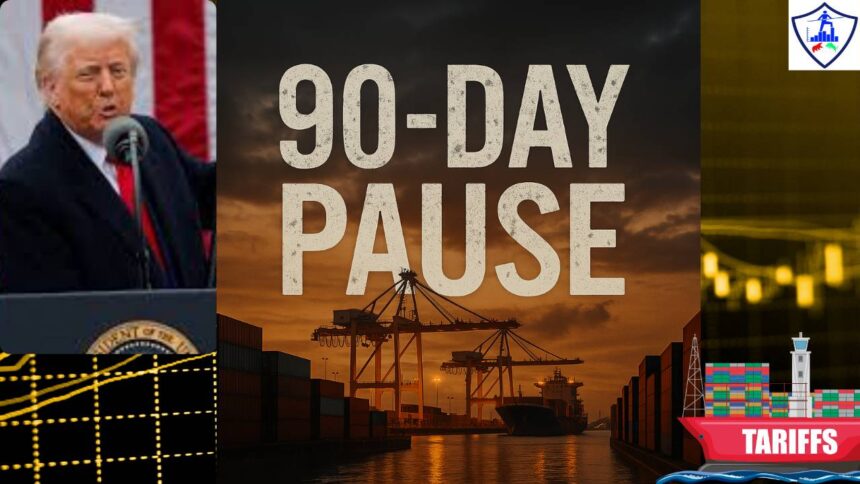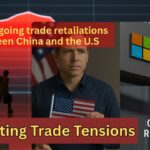US President Donald Trump announced 90 Day Pause on Tariffs for de-escalate the economic pressure and stabilization of global markets. Nations including South Korea, Japan, EU states and some Latin American countries are benefited through by this tactical move by Trump.
The 90 Day Pause on Tariffs can provide breathing space for allies and emerging markets under economic pressure. particularly those aligned with U.S. geopolitical interests or those who involved in supply chains critical to U.S. industries.
Trump pause move is signaling sharp strategy rather than a shift in policy direction. It help stabilize global markets rattled by aggressive tariff policies. Also, it can be used as leverage to negotiate on terms of bilateral trade.
China Trade War – Escalation Despite Pause Elsewhere
While others are relieved by this tactical move of 90 Day Pause on Tariffs, US-China tensions are intensifying, Increased tariff rounds on strategic sectors including tech, earth components, semiconductors. China’s retaliatory measures are targeting key exports of US including agriculture, aviation, and tech firms.
Raising national security concerns by continuing restrictions on Chinese firms including Huawei, TikTok.
Why China remains the target?
Persistent Trade Imbalance
The U.S. has long run a substantial trade deficit with China, exceeding $300 billion annually at a time. It is seen as just not the economic issue but as a reflection of unfair trade practices and a lack of market reciprocity.
Intellectual Property (IP) Theft & Forced Tech Transfers
US businesses concerns over theft of particularly in IP as technology and biotech sectors. Mandated joint ventures cost of market access in China.
Ideological & Systemic Rivalry
The conflict reflects more than just trade policy, it’s a broader strategic and ideological, China’s state-led model of authoritarian capitalism is challenging the US led liberal market system. Each side want to win by shaping the rules of 21st-century global economy, exceeding the rivalry into tech, digital governance, and global influence.
Will this diversify the supply chain?
Yes, Multinationals may accelerate “China + 1” strategies to mitigate tariff exposure. Countries in Southeast Asia, Mexico, and India may benefit as companies shift their supply chain away from China.
Investor sentiment
90 Day Pause on Tariffs will give some relief in a short-term, while continuing long-term risk pricing due to U.S.-China standoff. Safe haven like Gold, USD flows during flare-ups.
Read also: Trade War Fallout
90 Day Pause on Tariffs is not policy shifting – Strategic Move
It is aiming on to easing international pressure for upcoming trade summit, offering temporary economic relief to U.S. allies is a strategic move to stabilizing the market volatility.
Second, Managing domestic optics in to restore the strong stance to critical election cycles.
Despite the temporary 90 Day Pause on Tariffs, the underlying policy direction remains unchanged, especially toward China.
BBC confirms that substantial risks associated with further escalation “The relationship between the two nations becoming worse they could see their goods trade fall sharply at least 80% – a $466bn (£363bn) drop, according to World Trade Organization forecasts.
Republicans and Democrats parties agreed that China must be challenged which is tough approach to Beijing, future leaders likely go on pushing back with more restrictions on investments. They will boost American industry to fight China’s power. It means there is no change “who is in charge” they will likely go on with their strategy.









